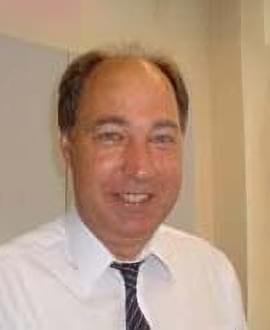Professor Maurice B. Hallett
Maurice B. Hallett, Ph.D., FRMS is Professor of Experimental Cell Biology and Director of Postgraduate Research Studies at Cardiff University School of Medicine, UK.
After obtaining degrees in Pharmacology from University College London, Maurice joined the Medical School in Cardiff, UK to establish a research group that is focused on the mechanisms which underlie the behaviour of human blood phagocytes, especially neutrophils. The work of this group is aimed at establishing novel therapeutic approaches to the treatment of inflammatory diseases by gaining insights into the mechanisms by which phagocytes capture and kill infecting microbes. This group, funded by the Medical Research Council (UK), the Wellcome Trust, the British Heart Foundation and other organizations, has established a number of novel ways of studying the behaviour of human phagocytes at the level of individual cells. These have involved the development of new micro-manipulation and sub-cellular imaging techniques.
Maurice has published over 150 full research papers in cell biological and immunological journals, authored many invited book chapters, has written two books on neutrophil cell biology and holds patents for inventions relating to cell engineering. His publications include The Neutrophil: Cellular Biochemistry and Physiology, The Molecular and Ionic Signaling of Neutrophils, Localised PtdIns(3,4,5)P3 or PtdIns(3,4)P2 at the phagocytic cup is required for both phagosome closure and Ca2+ signalling in HL60 neutrophils in Journal of Cell Science, The use of single image random dot stereograms for presenting 3D microscopic confocal images in Journal of Microscopy, and Priming of human neutrophils by tumour necrosis factor-alpha and substance P is associated with tyrosine phosphorylation in Immunology.
He also has an interest in the emergence of unpredictability in small systems and the ways in which this is overcome in living cells as he discussed in Is Life based on Clockwork Biology or the uncertainty of quantum physics? in Perspectives in Biology and Medicine. Details of all recent publications and patents can be found on the Neutrophil Signalling Group web site.
As well as membership of the Institute of Biology (UK) and the Biochemical Society (UK), he is a fellow of the Royal Microscopical Society, and serves on their Cell Biology Committee.
